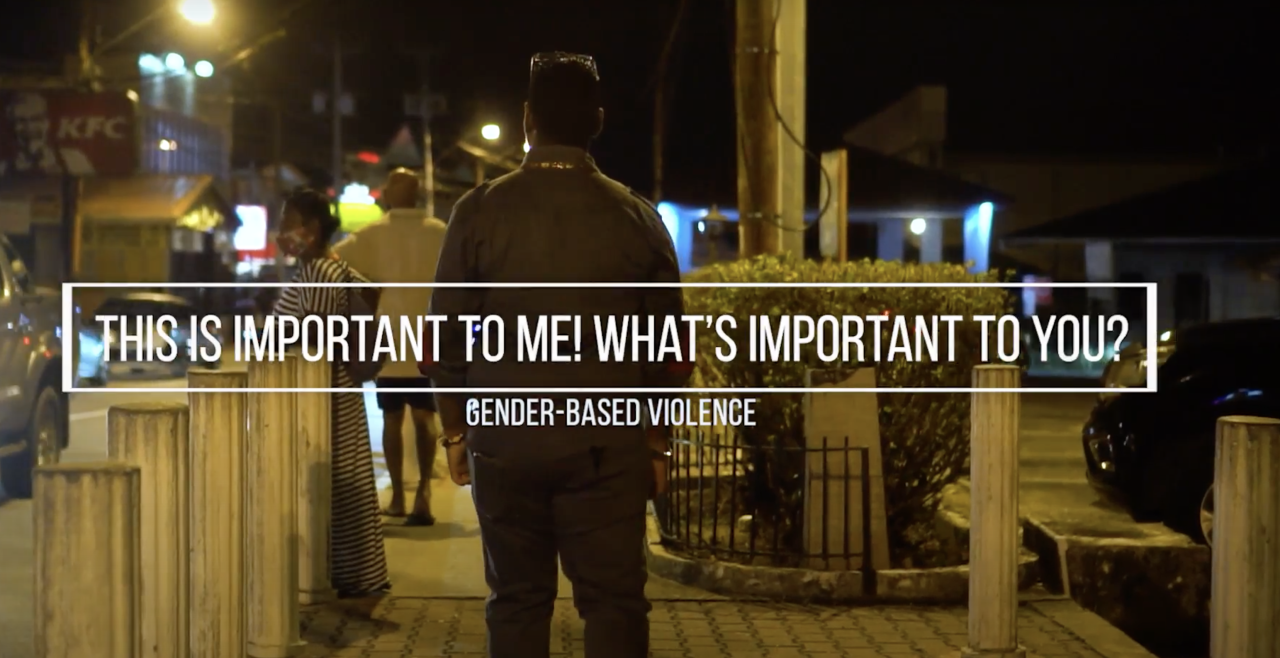Engaging Men and Boys To Advocate For Gender Equality and End Violence Against Women and Girls.

One out of every three women in Trinidad and Tobago, who has been in an intimate partner relationship has reported experiencing intimate partner violence —defined as physical, sexual, emotional or economic violence. According to the UN Women Caribbean Women Count Data Hub, in 2019, 87 per cent of perpetrators in reported domestic violence cases were men. These statistics underscore how urgently cultural norms that perpetuate this cycle must be addressed.
These harmful gender norms and stereotypes continue to fuel high levels of family violence reflecting continuing gender inequality. With ongoing implementation across the country, with particular focus on the communities of Tunapuna- Piarco, Mayaro-Rio Claro, and Tobago, the Spotlight Initiative aims to reduce family violence and ensure integrated, quality and accessible services and robust prevention approaches. The programme also aims to strengthen collaboration with community-based organisations, faith-based organisations and broad civil society.
As part of this effort, the Spotlight Initiative and the Institute for Gender and Development Studies (IGDS) of the University of the West Indies, St. Augustine Campus are engaging men and boys and faith-based male leaders to transform social norms, and become advocates for gender equality and ending violence against women and girls. The EU-UN Spotlight Initiative Male Leaders' Training Programme is currently training the second cohort of men, utilising the UN’s Foundations and Partnership for Peace curricula, which has been tested regionally.
This collaborative project continues decades of IGDS’ research, teaching and undertaking outreach related to men and masculinities. Men have an important role to play as allies to Caribbean feminist and women’s movements, non-violent partners to women, leaders in their religious communities, and citizens invested in justice, peace, care and equality.
Kemraj Besessea, who completed the training in September, described the programme as, “a life-changing experience for myself and my family.” Besessea said the training he received on the impact of domestic abuse, and the importance of consent gave him the confidence to advise others about how to make decisions to ensure their safety. Another graduate, Colin Poon Whay, said the programme helped him to, “become a much better person” and provided knowledge he could share widely.
Programme facilitator, Dr Safeeya Mohammed, said she observed “notable shifts in men’s knowledge and attitudes” and credits this to a layered approach to behaviour change which looks at gender socialization, culture, behaviours and ideologies that lead to violence. Facilitators for the Male Leaders’ Training Programme also included representatives from the Office of the Prime Minister, Gender and Child Affairs Division as well as the Family Planning Association of Trinidad and Tobago. Like her colleagues, Dr. Mohammed believes that “developing coordinated interventions within community spaces will help to further reduce the serious, negative consequences of violence and make the world a safer place for our women and girls."
This year, we saw a nation traumatised by male violence against women and girls. Making the world safer for women and girls also prevents many of the harms experienced by men and boys. Men that employ violence are a danger to society as a whole. Men’s contributions to greater peace in our families and communities can therefore benefit us all.
By Dr. Gabrielle Hosein with editing by Asiya Mohammed
